MADAGASCAR
Population

Population
Population
Madagascar had 29,450,000 inhabitants in 2024. The population density is approximately 50 inhabitants per km2. In the west, 2 inhabitants per km2 is no exception. The average growth of the population is about 2.18% per year. This means that the population doubles about once every 25 years. This high growth rate is due to the fact that the average mother has many children and families with more than 10 children are quite normal. The average life expectancy is not very high, more than 68 years. Almost 60% of the population still lives in the countryside; around 40% live in the cities. However, the migration to the big cities is great.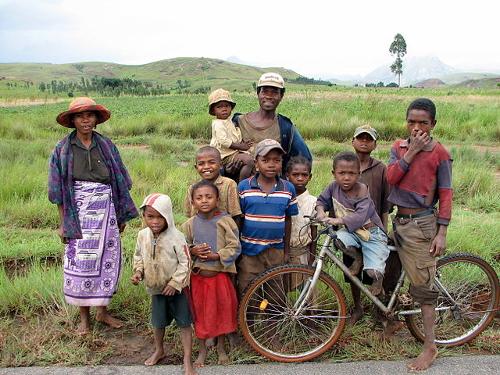 Family portrait, MadagascarPhoto: Bernard Gagnon CC 3.0 Unported no changes made
Family portrait, MadagascarPhoto: Bernard Gagnon CC 3.0 Unported no changes made
The capital Antananarivo currently has 3.9 million inhabitants. Other large cities are Toamasina, Fianarantsoa, Antsirabe, Mahajanga and Antsiranana.
The Madagascans are predominantly of Malay-Indonesian descent and to a much lesser extent there are black and Arab groups. About 1% of the population consists mainly of French, Comorese, Indians, Pakistanis and Chinese. The traditional Madagascan population is divided into 18 tribes, based mainly on the boundaries of the former kingdoms rather than on ethnic characteristics. While some tribes are of distinctly Asian or African descent, the Madagascan population is generally a mix of the following tribes: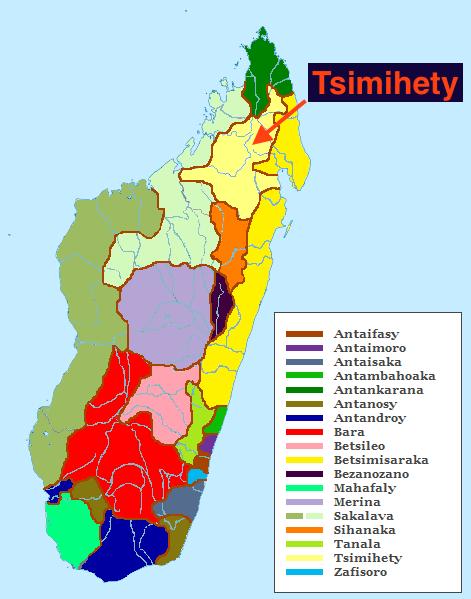 Ethnic groups MadagascarPhoto: Ms Sarah Welch CC 4.0 International no changes made
Ethnic groups MadagascarPhoto: Ms Sarah Welch CC 4.0 International no changes made
Antaifasy
Small tribe. Name means "those who live in the sand". Farafangara region on the east coast.
Antaimoro
Name means "she of the coastal region". Manakara region on the east coast. Related to the Arabs.
Antaisaka
Small tribe. Name means "she from Sakalava land". Split from the Sakalava tribe. Southeast coast region.
Antakàrana
Very small Muslim tribe. Name means "she of the cliffs". Ankàrana region in the far north. Fishermen and shepherds.
Antambohoaka
Name means "she of the community". Mananjary region in the southeast. Adhere to Islamic traditions.
Antandroy
Semi-nomadic tribe. Name means "she of the thorns". Poor tribe in the arid south. Income from charcoal sales. Many flee to other regions due to miserable circumstances.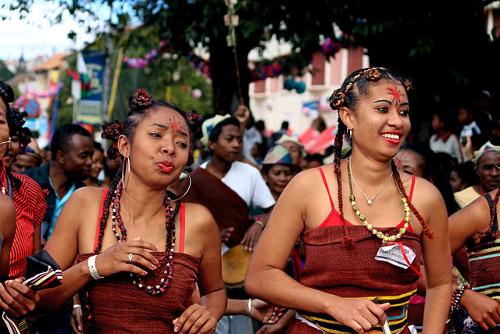 Antandroy dancers, MadagascarPhoto: Tojosoa Raherinirainy CC 4.0 International no changes made
Antandroy dancers, MadagascarPhoto: Tojosoa Raherinirainy CC 4.0 International no changes made
Antanosy
Name means "she of the island". Southeast region.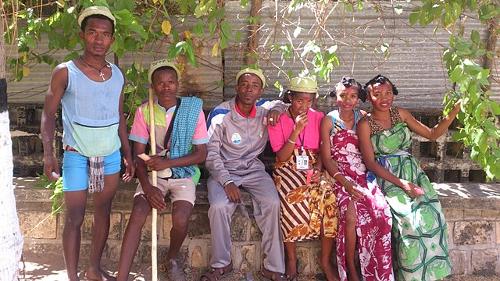 Antanosy is a Malagasy tribe found in the south-east of MadagascarPhoto: Miora Andrialalaina Florlys CC 4.0 International no changes made
Antanosy is a Malagasy tribe found in the south-east of MadagascarPhoto: Miora Andrialalaina Florlys CC 4.0 International no changes made
Bara
Origin name unknown; probably from Bantu language. Clearly of African descent. Shepherds.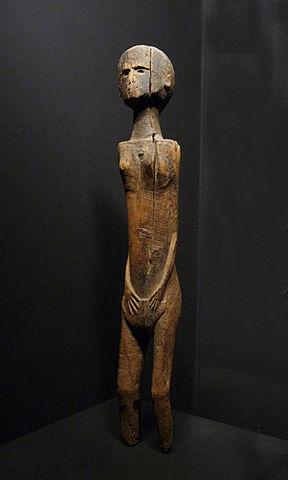 Wooden sculpture Mara, MadagascarPhoto: Ji-Elle CC 3.0 Unported no changes made
Wooden sculpture Mara, MadagascarPhoto: Ji-Elle CC 3.0 Unported no changes made
Betsileo
Name means "the invisible" "Region Fianarantsoa. Woodworkers and farmers. Subgroup are the Zafimaniry. Region east of Ambositra. Renowned woodworkers.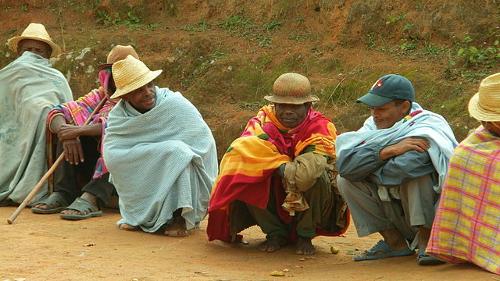 "Ray aman-dReny" or "Heads of families of a certain age", with the "lamba" during a funeral in a Betsileo village near Fianarantsoa, MadagascarPhoto: JeanMicheletAnne CC 4.0 International no changes made
"Ray aman-dReny" or "Heads of families of a certain age", with the "lamba" during a funeral in a Betsileo village near Fianarantsoa, MadagascarPhoto: JeanMicheletAnne CC 4.0 International no changes made
Betsimisaraka
Second largest tribe in Madagascar. Name means "those who are inseparable". Central and northeast coast region. Mainly farmers, growing coffee, sugar cane and cloves.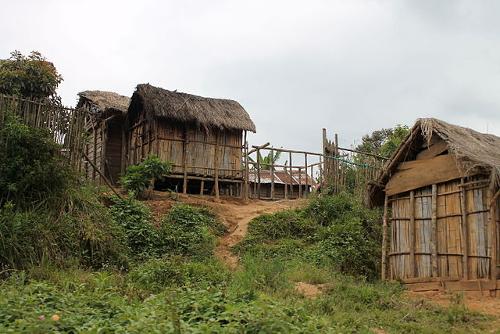 Betsimisaraka village, MadagascarPhoto: Heinonlein CC 4.0 International no changes made
Betsimisaraka village, MadagascarPhoto: Heinonlein CC 4.0 International no changes made
Bezanozano
Small tribe. Name means "she with many little braids" after the Afro hairstyle. Region between Merina and Betsimisaraka, mountainous rainforest.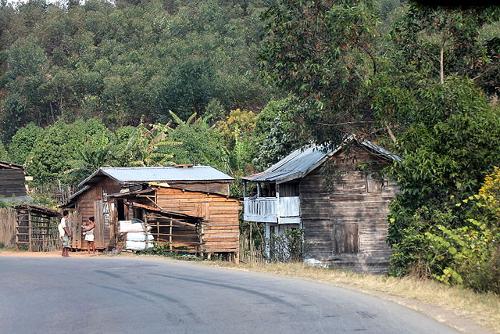 Bezanozano village, MadagascarPhoto: Heinonlein CC 4.0 International no changes made
Bezanozano village, MadagascarPhoto: Heinonlein CC 4.0 International no changes made
Mahafaly
Name means "makers of taboos". South-southwest region. Only arrived in Madagascar about 900 years ago. Farmers.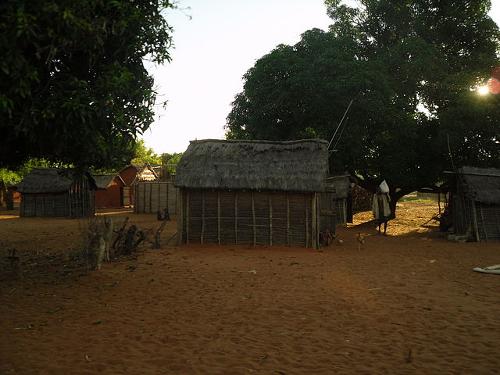 Mahafaly village, MadagascarPhoto: Jose Antonio CC 3.0 Unported no changes made
Mahafaly village, MadagascarPhoto: Jose Antonio CC 3.0 Unported no changes made
Merina
Largest tribe. Name means "she of the highlands". Of Asian descent with Madagascar's lightest complexion. Region around the capital Antananarivo. Population is divided into three castes: andriana = nobility, hova = free, andevo = workers (in fact slaves).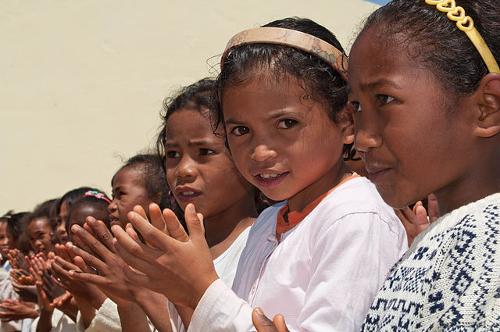 Merina-girls, MadagascarPhoto: Saveoursmile (Hery Zo Rakotondramanana), CC 2.0 no changes made
Merina-girls, MadagascarPhoto: Saveoursmile (Hery Zo Rakotondramanana), CC 2.0 no changes made
Sahalava
Name means "she of the long valleys". Populate the largest area: West Madagascar region. Dark skin colour. Two subgroups, Makoa descended from African slaves and Vezo, mainly fishermen.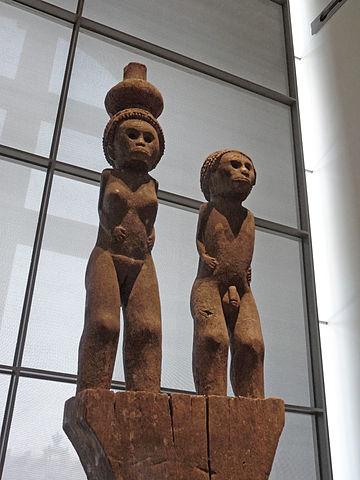 Sakalava sculpture. 17th-late 18th century. Southwest coast of MadagascarPhoto: Ji-Elle CC 3.0 Unported no changes made
Sakalava sculpture. 17th-late 18th century. Southwest coast of MadagascarPhoto: Ji-Elle CC 3.0 Unported no changes made
Sihanaka
Name means "those who roam the swamps". Fishermen and rice farmers. Lowland region around Lake Alaotra.
Tanala
Name means "she of the forest". Mountain region of the eastern rainforests.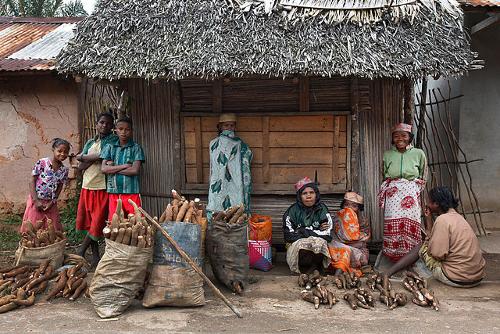 Tanala family, MadagascarPhoto: Steve Evans CC 2.0 Generic, no changes made
Tanala family, MadagascarPhoto: Steve Evans CC 2.0 Generic, no changes made
Tsimihety
Name means "those who do not cut their hair". Northwest region. Shepherds and rice farmers.
Zafisoro
Small tribe. Origin name unknown. Same region as the Antaifasy; Farafangana on the east coast.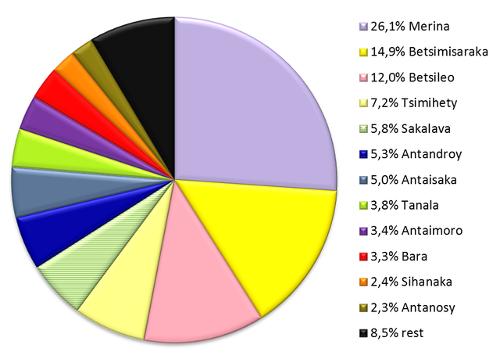 Percentages of Madagascar ethnic groupsPhoto: Heinonlein CC 3.0 Unported no changes made
Percentages of Madagascar ethnic groupsPhoto: Heinonlein CC 3.0 Unported no changes made
Sources
Bradt, H. / Madagascar
Bradt
Greenway, P. / Madagascar & Comoros
Lonely Planet
Lanting, F. / Madagascar : een wereld verdwaald in de tijd
Fragment
Rozeboom, A. / Madagaskar: mensen, politiek, economie, cultuur, milieu
Koninklijk Instituut voor de Tropen/Novib
Stevens, R. / Madagascar
Chelsea House Publishers
CIA - World Factbook
BBC - Country Profiles
Last updated January 2026Copyright: Team The World of Info